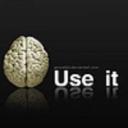Yahoo Answers is shutting down on May 4th, 2021 (Eastern Time) and the Yahoo Answers website is now in read-only mode. There will be no changes to other Yahoo properties or services, or your Yahoo account. You can find more information about the Yahoo Answers shutdown and how to download your data on this help page.
Trending News
Why is critical thinking not a part of atheism or religion?
When I was taking critical thinking back in college, one of the primary things we were required to learn is that opinions cannot be taken as fact. An opinion is any statement which is only true in a subjective sense, and therefore not objectively true or false.
Yet I look around at the answers which are given here, and people are being asked to prove their subjective experiences--proof that there is or isn't God. This cannot be proved; only experienced (or not experienced). It is therefore subjective. We can't prove that there is or isn't any deity. In good reasoning, a lack of proof is not proof of a lack, where subjective experience is concerned. To try to apply the criteria of objectivity to a subjective topic is fallacious (and runs afoul of over a dozen listed fallacies). Opinions simply are neither true nor false.
So the question here is: why does this not apply when people are talking about religion (or the lack thereof)? When someone asks a serious question, it seems like the trolls descend from both sides to take pot-shots, and this detracts from the actual ability to have anything approaching a rational discussion.
Why aren't either side allowed to have their opinions without the conversation devolving into personal attacks of some kind?
Why is having an opinion not permitted by theist and atheist alike?
I see a lot of people critical of my question, yet they aren't taking it in context. There is also a lot of red herring/straw man argumentation going on. I'm also seeing ad hominem argumentation (personal attacks against me) and several people who are really trying to answer the question honestly.
But really, this is about the R&S section of Y!A, and I'm asking why people don't see the need to apply good reasoning. There is foul on both sides (being self-described as "theist" and "atheist", or "those who believe in a deity" and "those who don't believe in a deity" because this is a section for asking questions about religion).
So why can't both sides--or at least one side--use good logic and reasoning instead of ad hominem, straw man, circular or other fallacious reasoning?
14 Answers
- 8 years agoFavorite Answer
For many people, religion or faith is a touchy subject. For those of us with faith, there is no argument that will shake that belief loose. It matters not that it may or may not be proven scientifically, it is fact for those who believe. The bible tells us that we are to rebuke or set straight, a fellow human who is taking the wrong path in life. We will be held accountable for not speaking up. That being said, it is not our job to judge others. We may not agree, but we should not judge. Point out the error and pray they change their course. Attacking others verbally for their beliefs is not what God had in mind.
We live in a world, that more often than not, there is no belief in anything that cannot be seen, or touched or sensed with our five senses. Yet we know love exists but can't see it. We know wind exists but we only see it's cause and effect on the environment, such as leaves blowing in the breeze. We know there is breeze because we see leaves move, we don't actually see it. So why is it so hard to believe that there is a God? Everywhere there is God's cause and effect, you just have to open your eyes.
It is always important to remember to be respectful of others beliefs whether we agree with them or not.
- ?Lv 68 years ago
You are right. It is very problematic that both sides seem to be incapable of allowing an opinion.
However, as to religion it depends on what religion you are talking about. Protestantism most of the times does use the critical method when scrutinising the scriptures and its contents -- and when developing new doctrines or evolving the older ones. They have found out so much by questioning the Bible and looking at the original text. They expressly allowed the questioning of even the most basic facts and gathered a hell of a lot of knowledge -- astoundingly without losing their faith over it. I cannot speak for the Catholic creed or Islam, although I have the feeling that they are far less critical in their scientific methods.
And I do find the atheist stance less open: They limit themselves to platitudes such as "If there really is a God why does he allow..." (followed by no-matter-what disaster). They ignore near-death experiences by clinically dead (and later re-surrected) patients, and reports about the one or other queer thing that cannot be explained entirely by science. They just pull down the shades and no longer look outside. So they both do not allow for an opinion and for the collection of facts that may disprove their stance. A double negative, so to say.
- JohnnyLv 78 years ago
The statement that there is no evidence for god's existence is a correct one. There is nothing subjective about that. You say that it can't be proved that god exists. IF god existed there might very well be proof. Your statement about it being impossible is therefore not true. Theoretically it might be proved like any other statement, but that has not been done. Since BASIC (which you should) philosophy states, the burdon of evidence is on the one claiming that something exist. Therefore the two statements god exist and god doesn't exist are not equal. An opinion is that something is wrong or right, that Obama is a good president etc.etc. Statements about reality are NOT subjective opinions. Do your homework!
- Anonymous8 years ago
I think it is more about the ability to believe in an omniscient, omnipresent creator. When I was younger I was able to believe because I had not learnt to reason for myself. As soon as I was mature enough to draw my own conclusions from my surroundings, I was no longer able to believe and remain intellectually honest. This was not a choice. Whether a god exists or not, I do not have enough (for me) verifiable information to enable me to believe in or worship any currently on offer.
- synopsisLv 78 years ago
You seem to be having problems understanding the difference between 'objective' and 'subjective' (a scalar, not a binary, distinction); between 'evidence' and 'proof' (similar); and you have even misinterpreted the old 'absence of evidence is not evidence of absence' adage.
You tell us you took a Critical Thinking course.
You should have told us that you failed it.
......
"I see a lot of people critical of my question, yet they aren't taking it in context."
You didn't tell us that you are a practising minister (apparent from several of your other answers).
If you make money out of selling people religion - of course you will want people to believe in its benefits.
Are you happier that we are answering your 'question' in context now?
......
(Incidentally: it is neither big nor clever to post 'questions' from a sockpuppet account which you then answer yourself, and award yourself BA for doing so.
People notice (the smart ones do)).
- SillypantsLv 78 years ago
That's the POINT. Asked for evidence is to lead the person to realize they cannot do so, so please stop pushing it on people and using science to support claims.
Come on... use some critical thinking, please.
And contrary to recent popular collective thinking, opinions do *not* have to be respected. Everyone is allowed to have their opinion. But people are allowed to have their opinion right back. I don't know what country you're in, but many of us are in free countries where people don't literally force another to not state their opinions. And that doesn't happen here, either.
- Pirate AM™Lv 78 years ago
Why would you assert that "...proof that there is or isn't God. This cannot be proved; only experienced..."? This calls into question that you are thinking critically.
We generally do not care about your opinions or beliefs, we do care very much about how those beliefs affect our laws, education, and culture.
- Anonymous8 years ago
Erm, this is the internet, not a classroom or Parliament.
Besides this, you are over-generalising. You will find all sorts of approaches from the downright rude to the very conscientious. You might like to review your own list of fallacies here.
- ?Lv 45 years ago
"who should be an element of something that includes a lot hate? " Please guard this statement at the same time as Christianity says to love your neighbor. Billions of Christians in the approach the globe are feeding the hungry, giving orphans dwelling house, worrying for the ill, worrying for the homeless. yet you're making such an outlandish statement..why? because some Christians trust in a definition of marriage? i respect how this equals hate. it really is as dumb as declaring in case you help your us of a then you definitely hate another us of a.
- 8 years ago
Perhaps you should have taken science rather than philosophy. Magic is impossible therefore gods are impossible.
Fact not opinion.







